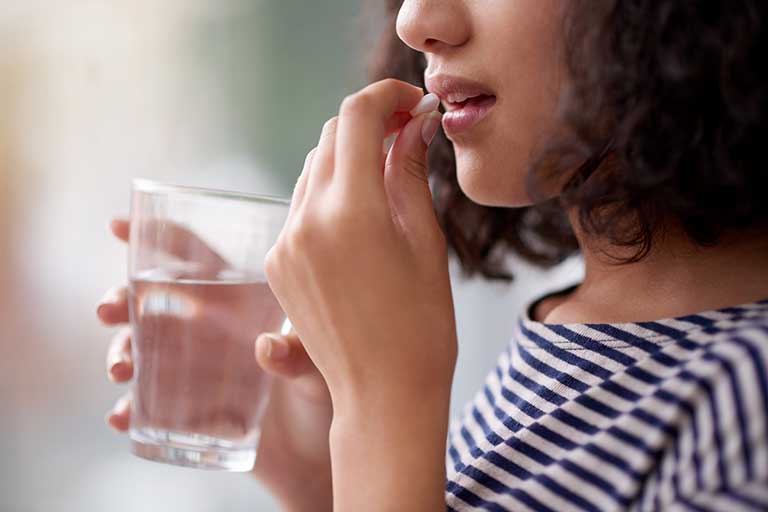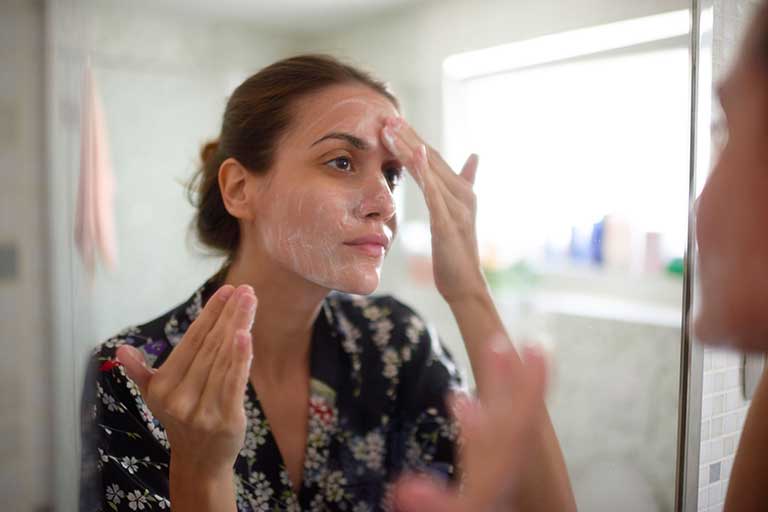Acne: Treatments
Acne is a skin disorder that usually appears in adolescence and causes blackheads and pimples. Acne can leave scars and have psychological repercussions. Therefore, it is important to treat it early.

Treatment
There is not one single effective treatment for acne, so sometimes a combination of treatments is recommended. Since acne lesions take at least eight weeks to mature, the treatment must be maintained for a minimum of two to three months before deciding if it is effective.
Pre-Treatment Evaluation:
To decide the most appropriate treatment for acne for each individual, it is required to obtain the following information from the medical history and physical examination:

- Clinical Type and Severity of Acne: To determine the necessary types of treatment.
- Type of Skin: Dry or oily, helping to choose a topical pharmacological vehicle. This choice is important because it conditions the effectiveness of treatment by affecting absorption and duration of action. Topical vehicles are the different forms adopted by the active ingredient (the medication), such as ointment, cream, gel, lotion, spray or powder.
- Presence of Acne Scars: This will indicate the need to consider a more aggressive therapy and treatment for acne.
- Presence of Post-Inflammatory Erythema or Hyperpigmentation: This leads to consider the possibility of treatments for this type of signs.
- Periodicity of the Menstrual Cycle and History of Signs of Hyperandrogenism in Women: To help determine the need of additional lab tests and prescription of hormone treatments.
- Skin Care Habits and Previous Acne Treatments: To identify potential issues in skin care and previous treatments that may have worked or not.
- Cosmetic Products or Other Medications: To identify products that may favor the occurrence of acne.
- Psychological Impact of Acne on the Patient: It helps to determine the need of a more aggressive treatment approach or psychological support.
Principles of Treatment:
Acne treatment is mainly intended for key factors promoting the development of acne lesions: follicular hyperproliferation and abnormal desquamation of epithelial cells (keratinocytes), increase in sebum production, excessive growth of Cutibacterium acnes, and presence of inflammation.
The first choice for most cases of acne. Topical retinoids may cause redness in the skin and, during its use, it is recommended to apply sun protection factor (SPF) of 30 or higher.
Approach to Treatment:
An example of a general approach to the initial treatment of acne based on the 2016 American Academy of Dermatology would depend on the patients' type of acne and their medical history (table).
General approach to treatment based on patient's type of acne.
| A. Comedonal (Non-Inflammatory) Acne: |
|
| B. Mild and Mixed (Comedonal) Papulopustular Acne: |
|
| C. Moderate and Mixed Papulopustular Acne: |
|
| D. Severe Acne (e.g. Nodular Acne): |
|
Maintenance of Treatment:
In general acne recurs over the years, so maintenance treatment is an important component. Patients need to keep in mind that it usually takes at least from two to three months of constant treatment to see results. Sometimes it may be necessary to make readjustments in the medication.

Care of Skin with Acne:
Skin care is essential for the treatment of acne. For the treatment to be more effective, some habits must be followed.
- Skin Hygiene: The face should not be washed more than twice a day with warm water (not hot) and a mild facial cleanser without soap. It is not recommended to use vegetable towelettes or sponges or rub the face because it may worsen acne and damage skin. Pimples should not be squeezed because it may worsen acne and cause swelling and leave scars on the skin, or it may help lesions to get infected.
- Moisturizing Creams: The use of a moisturizing cream reduces skin dryness and, therefore, desquamation. You must use creams with labels indicating that they are non-comedogenic to reduce the probability of skin pores plugging.
- Sun Protection: Some acne treatments, such as retinoids or doxycycline, increase skin sensitivity to sunlight, so it is advisable to avoid excessive sun exposure and always use sun protection factor (SPF) of 30 or higher, which blocks both ultraviolet A (UVA) and ultraviolet B (UVB) radiation.
References
- Zaenglein, A.L., Pathy, A.L., Schlosser, B.J., Alikhan, A., Baldwin, H.E., Berson, D.S., et al. Guidelines of care for the management of acne vulgaris. J Am Acad Dermatol [Internet]. 2016 May 1;74(5):945-973.e33. Available at: https://www.ncbi.nlm.nih.gov/pubmed/26897386. doi: 10.1016/j.jaad.2015.12.037.
- Nast, A., Dréno, B., Bettoli, V., et al. European evidence-based (S3) Guidelines for the treatment of acne. J Eur Acad Dermatol Venereol [Internet]. 2012;26 Suppl 1:1–29. Available at: https://www.ncbi.nlm.nih.gov/pubmed/22356611. doi:10.1111/j.1468-3083.2011.04374.x
- European Academy of Dermatology and Venereology (EADV). Acne: how to treat it [Internet]. 2020. Available at: https://www.eadv.org/cms-admin/showfile/9635-EADV%20Acne_2%20How%20to%20treat%20it.pdf

